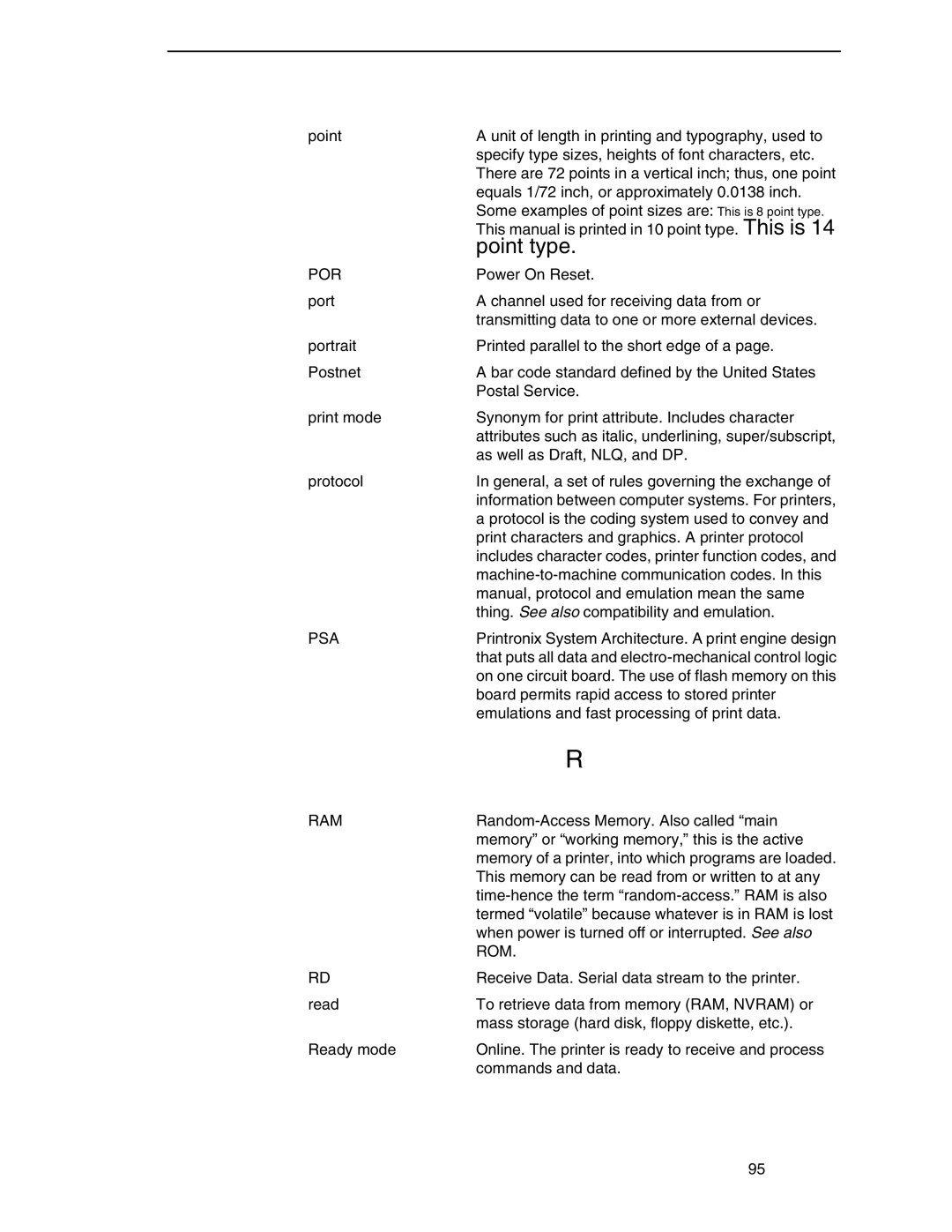point | A unit of length in printing and typography, used to |
| specify type sizes, heights of font characters, etc. |
| There are 72 points in a vertical inch; thus, one point |
| equals 1/72 inch, or approximately 0.0138 inch. |
| Some examples of point sizes are: This is 8 point type. |
| This manual is printed in 10 point type. This is 14 |
| point type. |
POR | Power On Reset. |
port | A channel used for receiving data from or |
| transmitting data to one or more external devices. |
portrait | Printed parallel to the short edge of a page. |
Postnet | A bar code standard defined by the United States |
| Postal Service. |
print mode | Synonym for print attribute. Includes character |
| attributes such as italic, underlining, super/subscript, |
| as well as Draft, NLQ, and DP. |
protocol | In general, a set of rules governing the exchange of |
| information between computer systems. For printers, |
| a protocol is the coding system used to convey and |
| print characters and graphics. A printer protocol |
| includes character codes, printer function codes, and |
| |
| manual, protocol and emulation mean the same |
| thing. See also compatibility and emulation. |
PSA | Printronix System Architecture. A print engine design |
| that puts all data and |
| on one circuit board. The use of flash memory on this |
| board permits rapid access to stored printer |
| emulations and fast processing of print data. |
| R |
RAM | |
| memory” or “working memory,” this is the active |
| memory of a printer, into which programs are loaded. |
| This memory can be read from or written to at any |
| |
| termed “volatile” because whatever is in RAM is lost |
| when power is turned off or interrupted. See also |
| ROM. |
RD | Receive Data. Serial data stream to the printer. |
read | To retrieve data from memory (RAM, NVRAM) or |
| mass storage (hard disk, floppy diskette, etc.). |
Ready mode | Online. The printer is ready to receive and process |
| commands and data. |
95
